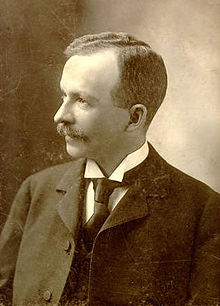Last post, I wrote about a couple of the manifestos on Southern Studies that appear in the current issue of PMLA. Today, I want to continue this discussion by exploring a couple more manifestos, most notably Katharine Burnett’s and R. Scott Heath’s pieces. These essays reach back, to a period typically overlooked, and forward, from a new, interplanetary viewpoint. Here, I want to comment on Burnett’s piece and briefly state my interest in furthering my knowledge of Heath’s.
For me, the key point in Burnett’s “Mold on the Cornbread: The Spore Paradigm of Southern Studies” lies in the fact that she calls for a reclamation of Southern Studies that looks past the 1930s to texts written in the latter part of the nineteenth century and even to texts written before the Civil War. This re-claiming of texts from before 1930 “serves to expand American literary studies generally” because the issues that confronted the South, then and now, correspond to “other areas of the country and the world [who] share in the South’s historical, political, and economic patterns” (162). Why should we study
George Washington Cable or even authors like
George Fitzhugh who were ostensibly pro-slavery?
 |
| Charles W. Chesnutt |
We should examine these authors because they provide us with a broadened view of the mileu that authors such as Charles Chesnutt and David Walker wrote within respectively. I can recall teaching excerpts from William Wells Brown’s Clotel in an American literature survey course a couple of years ago. During class, I had students, in small groups, read excerpts from Freedom’s Journal, George Fitzhugh, Thomas Jefferson, John C. Calhoun, and others. Students had to respond to the readings and discuss what they said that could relate to Brown’s novel. I chose these texts because some of them were blatantly pro-slavery and did not appear in the Norton Anthology of American Literature. When students read Fitzhugh and Calhoun, they came to better understand what authors like Brown and Walker were up against, especially given Fitzhugh’s economic arguments when justifying slavery as a practical institution.
Thinking about an author like Cable, we must get students to read him because he wrote about Louisiana, a state that could have been, according to Thadious Davis and others, a model for race relations in the United States if it were not for the Americanization of the region following the Louisiana Purchase in 1803. Cable’s texts, like those of Chesnutt, present us with an image of race science and identity during the latter part of the nineteenth and early part of the twentieth century. Most notably, Cable’s
The Grandissimes (1881) and
Chesnutt’s Paul Marchand, F.M.C. (1921) both take place in New Orleans in the early 1800s, during a period when the free people of color had the opportunity to succeed financially, albeit while still encountering restrictions based on the color of their skin. Both texts focus on the choice of identity amidst structures that seek to keep individuals in particular categories. As such, Cable’s and Chesnutt’s novels work to explore identity that creates “a sense of place based on human interactions,” something Burnett argues we should consider in regards to Southern Studies (162).
Likewise, Heath’s “The Other Side of Time: Theorizing the Planetary South” seeks to remove the idea of Southern Studies from a specific geographical space to a more all encompassing spectrum, one that sees the projection of space and a movement towards a spectrum where “[w]e transcend the previous idioms through transformative distortions of time signatures and space registration” (172). Heath explores
afrofuturism and its relation to his theory. I can say, at this point, that I do not know as much as I would like to about this aesthetic movement apart from a handful of texts such as Octavia Butler’s
Kindred. However, even with my lack of knowledge, I am interested in the ways that
afrofuturism takes elements of “Southern” African American texts (containment, flight, etc.) and transforms them into an interplanetary space. I’ve heard these arguments before, and I am interested, now, to explore them further in my own studies. In the comments below, what suggestions do you have in regards to where I should start (movies, music, literature)?
I did not discuss every piece in “The Changing Profession” section of the most recent PMLA, but I hope what I did present leads you to pick up the current issue and read the rest of the manifestos that appear. The others cover such topics as ecocriticism, queer theory, and activism in Southern Studies. There are numerous things to think about here, of course. What are your thoughts and ideas? As usual, let me know in the comments below.

